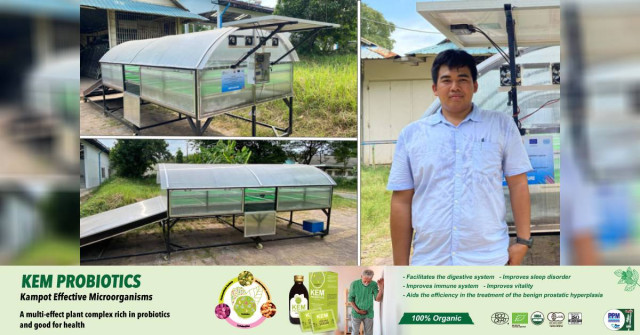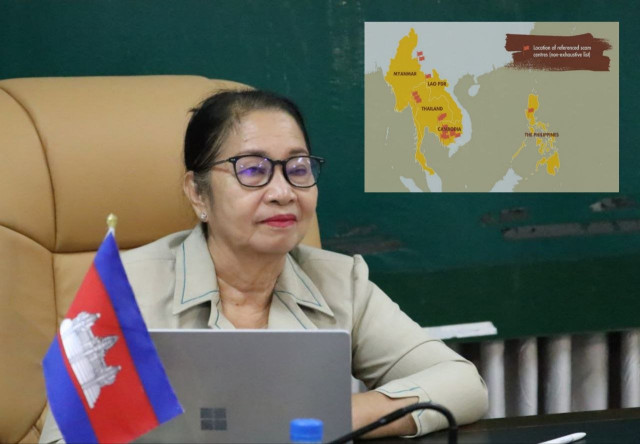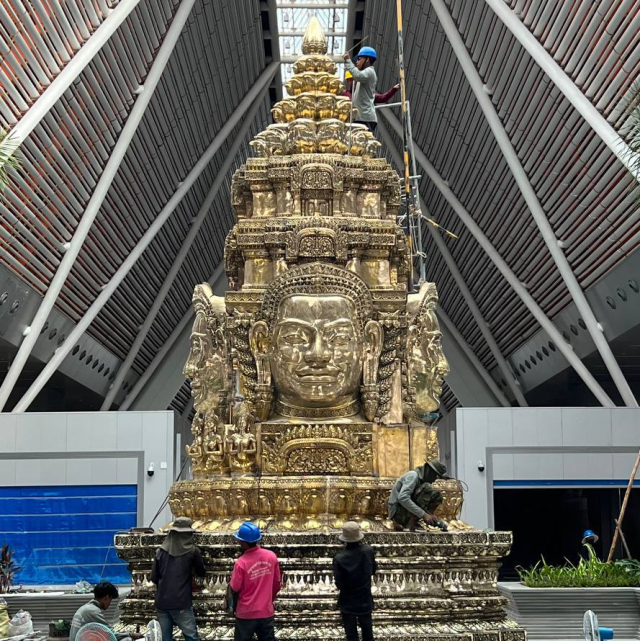Agriculture Students Develop Sensor-Equipped Fish Dryer

- By Chhum Chantha
- December 13, 2023 8:50 AM
PHNOM PENH – A group of Bio-agriculture Engineering students at the Royal University of Agriculture (RUA) have developed a medium-sized fish dryer to improve the drying process of fish, which is an important intake of protein for Cambodians.
Equipped with sensors, it collects real-time data to better control humidity levels, heat and ventilation, thus improving product hygiene and quality.
Mean Chan Makara, an officer and researcher at RUA’s Faculty of Agricultural Biosystems Engineering, highlighted two purposes behind this innovation.
“The first driver behind this new drying equipment is to improve the hygiene of products. Then comes the research part: We want to find out what makes the best dry fish, and we need data for that. Once the sensors have collected all the data, we can set up the machine in a way that will provide the best quality dry fish,” Makara said.
The dryer aims to replace traditional sun-drying techniques, which allow no control over food quality. But to make sure the equipment doesn’t have any impact on customers’ electricity bills, or to allow it to work in remote areas, it has been equipped with solar panels.
The fish dryer can dry between 100 or 150 kilograms of fish per day. It can help farmers and artisans improve their hygiene and maintain the quality of fish longer than normal drying, especially during the rainy session.
Makara said he is proud of having developed such a tool, and hopes it will be useful to Cambodian fishermen and cooks.
“This is the first time that we developed fish drying equipment with a sensor. We also have experts to make sensors in our faculty and we want to promote the concept of digital agriculture since it is very popular right now.”
Looking ahead, Makara plans to transition from research to commercial implementation, collaborating with farmers and artisans. However, he said that it is very important to have the right team, with the potential to make the move from lab development to larger-scale commercialization.
But he is optimistic the fish industry and Cambodians consuming dry fish will benefit from his invention.
This solar dryer was developed under the Capfish-Capture project funded by EU and UNIDO.
Originally written in Khmer for ThmeyThmey25, this story was translated by Chhuon Kongieng for Cambodianess.















